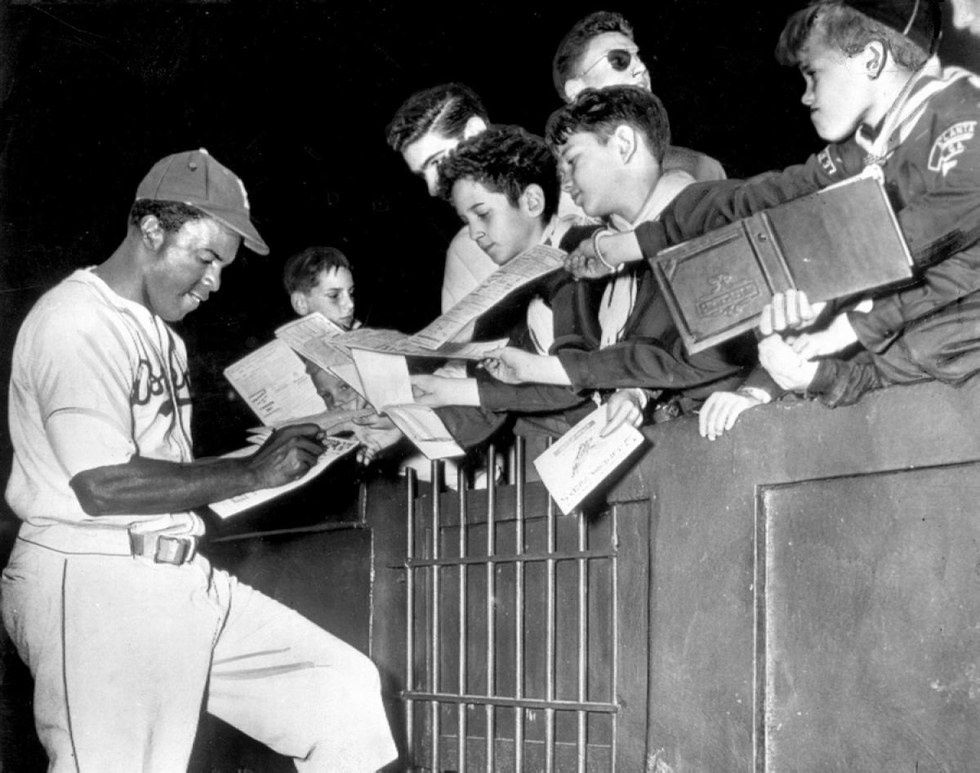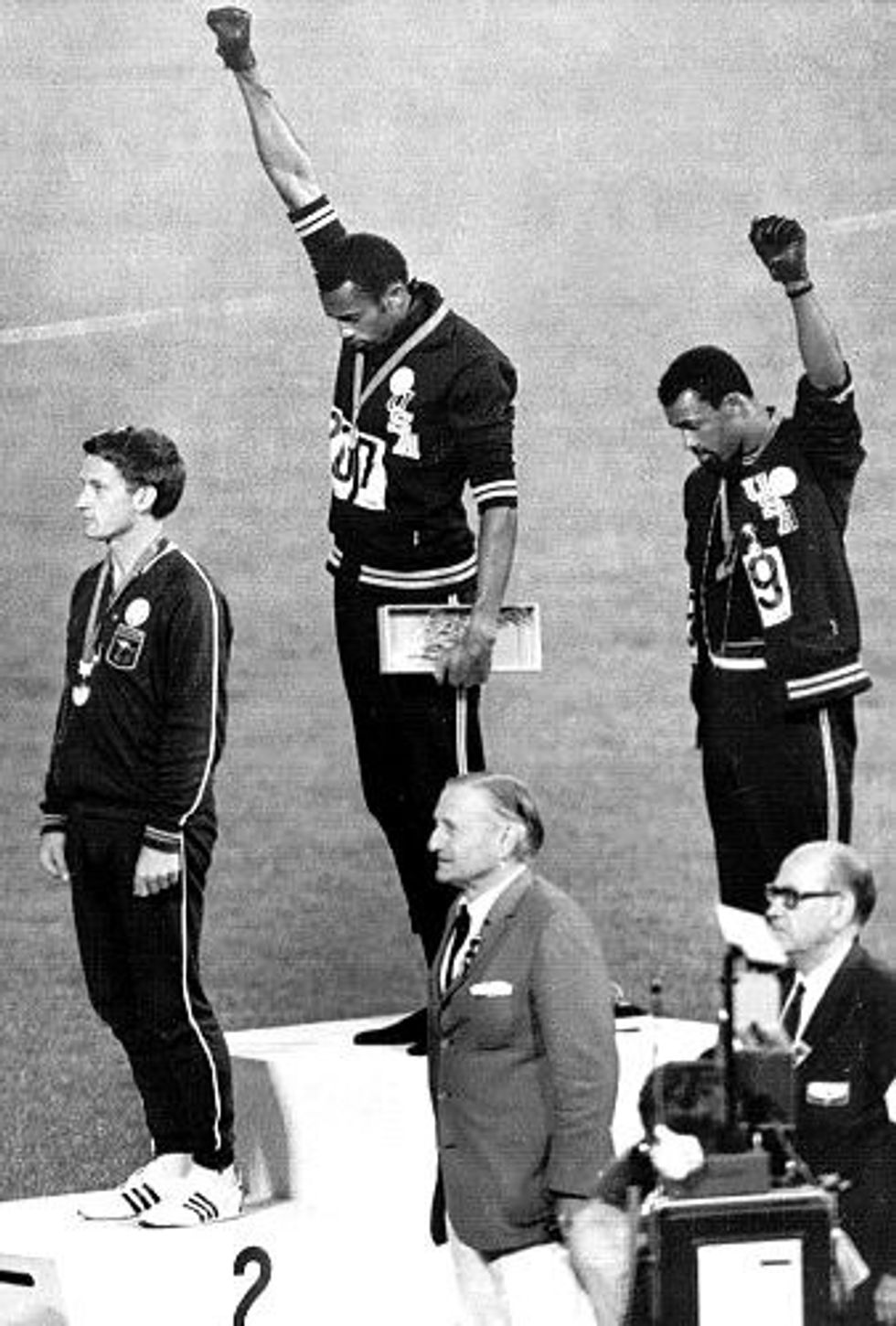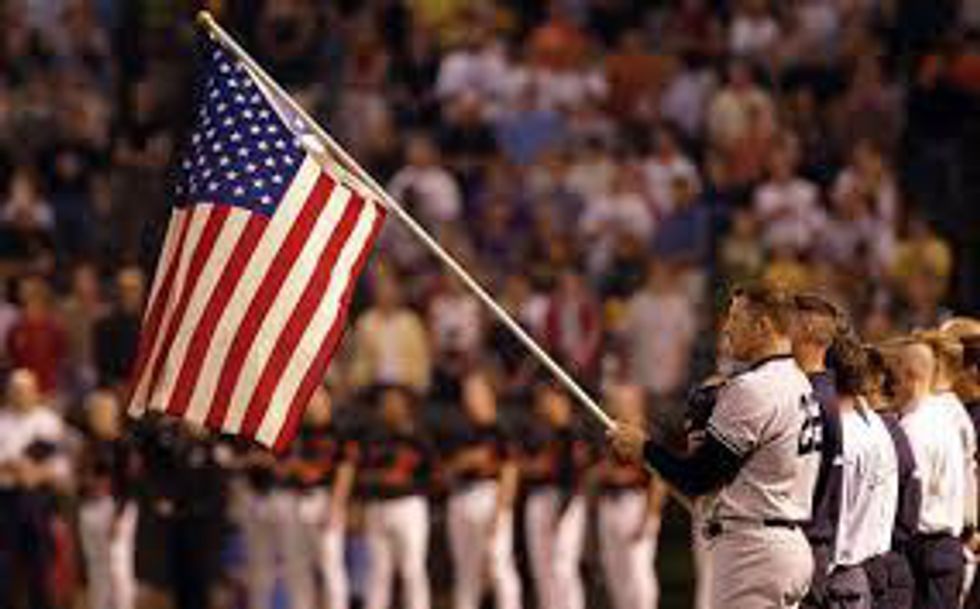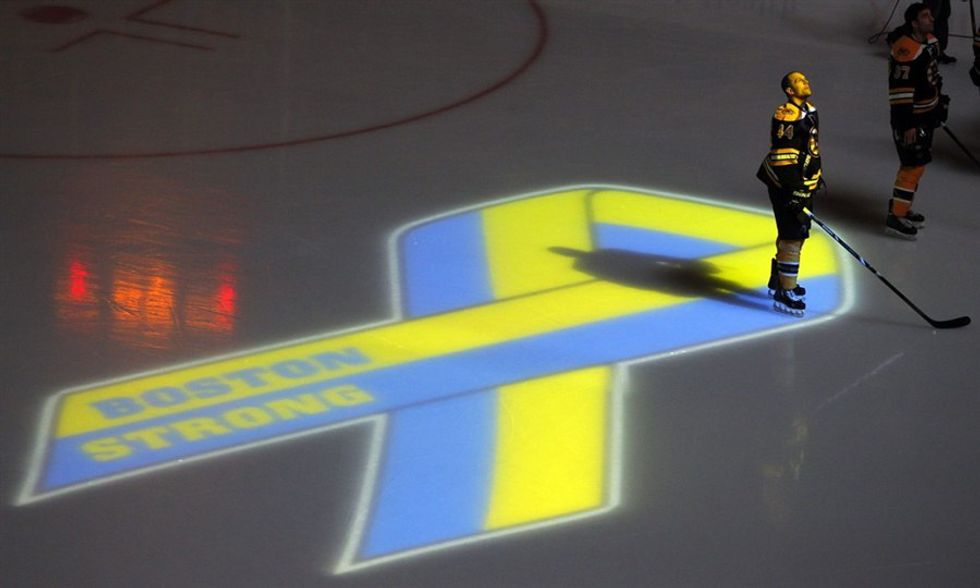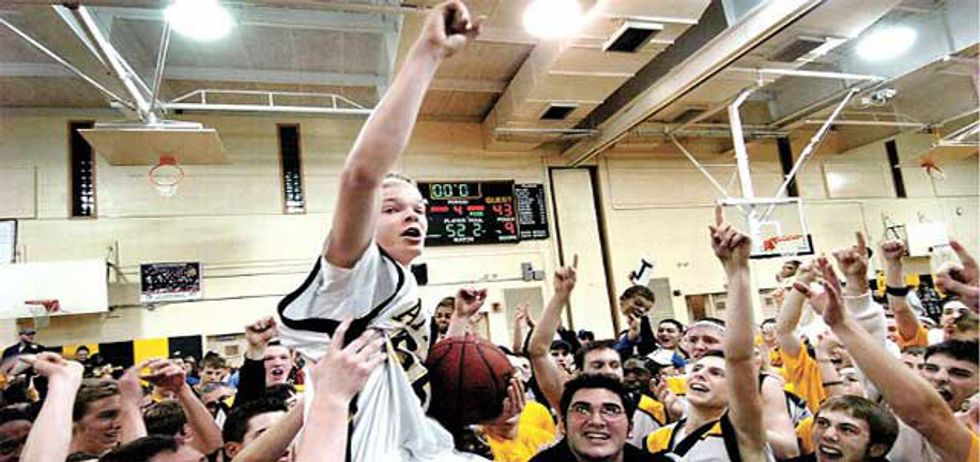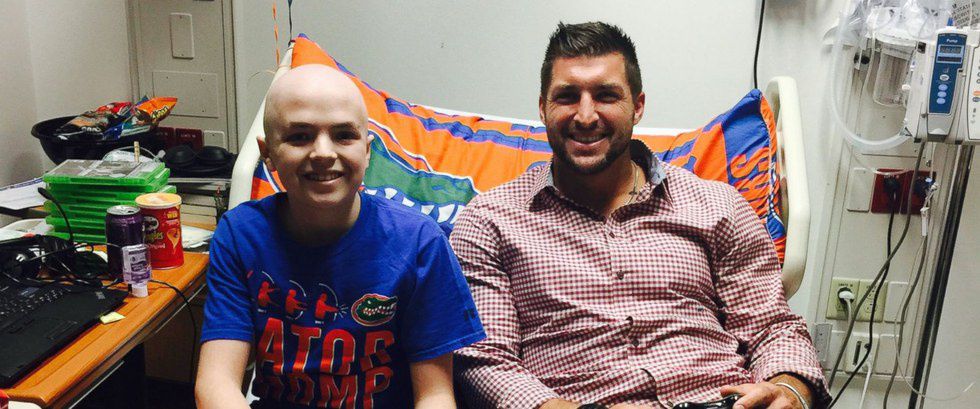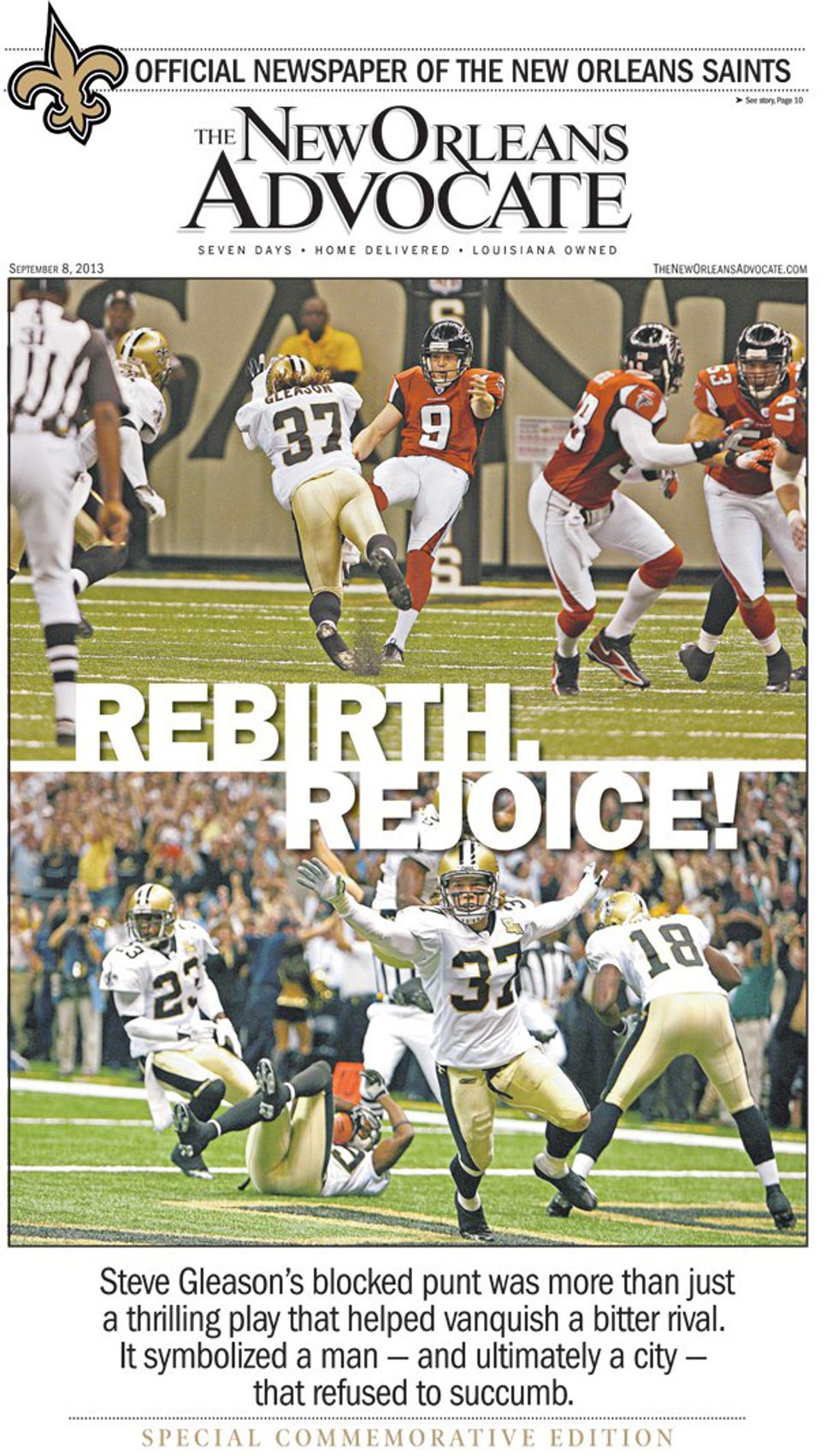How many times do we hear the question, "Why do people care so much about sports?" To some, sports are nothing but a distraction and a waste of time, money and energy. Some people scoff at the fact that careers are made out of playing with a ball. Some are upset that kids spend hours a day on sports. “It doesn't really matter, it's just a sport." While they have their imperfections, I believe sports are necessary. Sports really do matter.
In 1947, almost 20 years before the Civil Rights Act of 1964, Brooklyn Dodgers' GM, Branch Rickey, signed a man named Jackie Robinson because Rickey believed in the power of sports. The same whites that once despised the idea of drinking from the same water fountain as a Negro found themselves adoring their new superstar. Robinson was bombarded with a mountain of racist backlash in opposing venues, but the seeds of equality were being sown in the hearts of Americans, especially in Brooklyn. Being an icon in America's pastime, Jackie inspired a monumental shift in attitude toward Blacks that preceded the 1960s Civil Rights movement. Jackie Robinson was just the tip of the iceberg. Where would the Civil Rights movement be without Jesse Owens, Joe Lewis and Arthur Ashe, along with so many other star athletes that took a stand? It's more than "just a game." Historically, sports have had the power to touch our hearts and inspire change. Sports matter.
Oct. 30, 2001, the New York Yankees are playing in the World Series just six weeks after the 9/11 terrorist attacks. Over 3,000 people are dead, millions of lives are affected throughout the city and two iconic towers are gone forever. Through the cloud of darkness, there is a ray of happiness for New Yorkers that fall: their beloved New York Yankees. Before the start of Game 3 at Yankee Stadium, President George W. Bush, wearing a New York Fire Department jacket, fires in the first pitch and walks off the mound to nearly 60,000 fans chanting "USA, USA, USA." On that cold October night, sports were the only thing those fans had. That pitch meant so much more than "play ball." That scene was a symbol of strength, resilience and most importantly, unity.
The same can be said about Boston in 2013. Two days after the terrorist attack, the Bruins were on home ice. About 10 seconds into the national anthem, the singer stopped and the music was shut off, and all you could hear were 18,000 people singing the rest of the anthem in perfect harmony. The stadium boasted American flags and heavy hearts. Again, it was more than "just a game." That night, the Bruins had the opportunity to help people smile again. They had the ability to make their city proud. Sports matter.
In 2013, 7-year old cancer patient, Jack Hoffman, scored a 69-yard touchdown in Nebraska's spring game. In 2006, an autistic equipment manager, Jason McElwain, entered the last home game of his high school career and scored 20 points, including six 3-pointers in the final four minutes of play. In 1977, Terri Fox lost his right leg to cancer. He then proceeded to run nearly a marathon a day for 143 days in a row to raise awareness and money for cancer. Fox totaled over 3,339 miles on one leg, captivating an entire nation, and people are trying to say sports don't matter?
How many millions of kids have been touched and inspired when their favorite professional athletes visit them in the hospital? How inspiring and tear jerking was the Miracle on Ice, given the tension with the Soviet Union? The 1966 National Basketball Championship, which Texas Western won with the first ever all-black starting lineup? How much fun was it to see an 11 seed, George Mason, bust our brackets and make the Final Four? A no-name like Rocco Mediate go shot for shot with Tiger woods for 91 holes?
Sports allowed Derrick Rose to escape the gang infested streets of Englewood, Chicago. Sports helped Josh Hamilton recover from a severe drug addiction. Sports gave a young and fatherless LeBron James an identity and sense of purpose in life. Sports gave a post-Hurricane Katrina New Orleans something to smile about again. Sports gave a homeless Jimmy Butler a family: his teammates. Sports matter.
Sports teach us that good things don't come easy. They teach us that hard work pays off and you reap what you sow. They teach us a commitment to something bigger than oneself. They teach us the value of persistence and tenacity. They teach us that sheer passion can trump logic. They give us lifelong friendships. They teach us the value of teamwork and sportsmanship. The crack of a bat, the swish of a net and a ball made of pigskin transcends racial and gender lines, and political differences. That is why sports matter. Yes, there are those crazy nuts who paint their faces, get prophetic tattoos and fight with their neighbor who flies the rival team’s flag, but hey, it’s not that crazy…it’s just sports.




